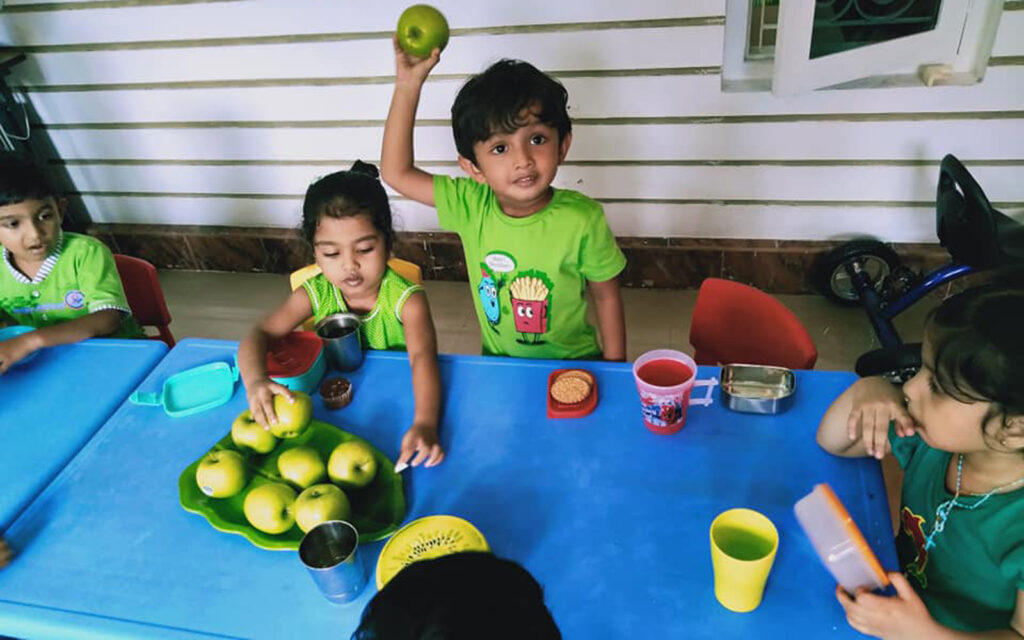
Fostering Healthy Futures: Children’s Eating Habits and the Montessori Method
January 24, 2024
The Montessori method places importance on fostering independence, self-discipline, and a sense of responsibility in children, and this philosophy extends to the approach to eating habits. Here are some key principles related to children’s eating habits according to the Montessori method:
-
Independence in Mealtime Preparation:
- Montessori encourages children to be involved in mealtime preparation. This could include activities like washing vegetables, setting the table, or even simple food preparation tasks suitable for their age. This fosters a sense of independence and responsibility.
-
Self-Serving at the Table:
- Children are encouraged to serve themselves during meals. This promotes autonomy and allows them to make choices about the quantity and types of foods they want to eat. It also supports the development of fine motor skills.
-
Respect for the Child’s Appetite:
- The Montessori philosophy emphasizes respecting a child’s appetite. This means not forcing a child to eat or finish a certain amount of food. Instead, children are allowed to listen to their own hunger and fullness cues.
-
Family-Style Dining:
- Montessori promotes family-style dining whenever possible. This involves having meals together as a family, sharing dishes, and engaging in conversation. Family-style dining contributes to a sense of community and connection.
-
Introduction to a Variety of Foods:
- Children are exposed to a diverse range of foods. The Montessori method encourages providing a variety of nutritious foods from different food groups, allowing children to explore different tastes, textures, and flavors.
-
Modeling Healthy Eating Habits:
- Adults and caregivers serve as role models for healthy eating habits. Children learn by observing the behavior of those around them. Modeling balanced and nutritious food choices contributes to the development of healthy eating habits.
-
Teaching Table Manners:
- Montessori emphasizes the teaching of good table manners. Children are guided in the proper use of utensils, napkins, and polite communication during mealtime. This helps develop social skills and respect for others.
-
Conducive Environment:
- The dining environment is arranged to be conducive to concentration and focus during meals. This might involve a well-prepared table, appropriate seating, and minimal distractions to create a calm and enjoyable atmosphere.
-
Engaging the Senses:
- The Montessori approach recognizes the importance of engaging the senses during meals. This could include discussions about the colors, textures, and smells of different foods, enhancing the sensory experience of eating.
-
Connection to Practical Life Skills:
- Practical life skills, a significant component of Montessori education, extend to activities related to food. Children are involved in tasks such as washing, peeling, and cutting, which not only contribute to their independence but also help develop fine motor skills.
-
Encouraging Gratitude:
- Before meals, there may be a moment of gratitude or a brief acknowledgment of the effort put into preparing the food. This instills a sense of appreciation for the food and the work involved in bringing it to the table.
By incorporating these principles into the child’s daily routine, the Montessori method aims to create a positive and respectful relationship with food, supporting the child’s physical, emotional, and social development.


